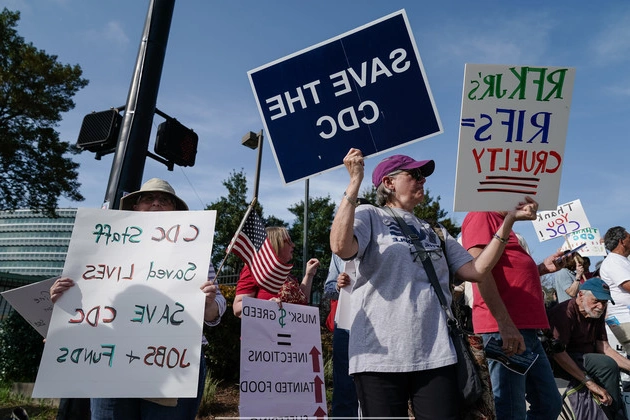
The Trump administration’s actions have significantly impacted congressionally mandated health department programs, leading to legal challenges and operational disruptions. While the administration justifies these cuts as necessary streamlining, critics argue that maintaining programs in name only without adequate staff is unconstitutional.
Despite agencies having some discretion in fulfilling Congressional mandates, the Department of Health and Human Services (HHS) has witnessed upheaval, resulting in the cessation of essential programs required by law. These cuts not only make the agency susceptible to lawsuits but also contradict Health Secretary Robert F. Kennedy Jr.’s efforts to streamline operations.
Legal Challenges and Program Disruptions
A federal judge intervened to halt sweeping layoffs at several agencies, including HHS, emphasizing the need for legislative branch cooperation in major reorganizations. The layoffs within the National Institute for Occupational Safety and Health (NIOSH) have had profound effects on crucial programs like the National Firefighter Cancer Registry, Fire Fighter Fatality Investigation and Prevention Program, and more.
Despite assurances from HHS that critical initiatives under NIOSH will continue, the reality on the ground paints a different picture. The CDC and other agencies have faced similar issues, with programs mandated by Congress being rendered inoperative due to staff reductions.
Legal Implications and Disputed Actions
The legality of these actions has come under scrutiny, with concerns raised about the administration’s overreach. Several lawsuits have been filed by federal worker unions and state attorneys general, challenging the dismantling of statutorily mandated programs that promote public health.
Congressional lawmakers have also expressed reservations, highlighting the impact of these cuts on critical programs like the CDC’s Assisted Reproductive Technology Surveillance System. The pushback against these actions underscores the importance of Congressional oversight and the role of the legislative branch in such decisions.
Future Implications and Controversies
The ongoing debate surrounding these cuts and their repercussions underscores the need for transparency and accountability in government actions. While some lawmakers support the administration’s efforts, others question the legality and morality of eliminating essential programs.
As the legal battles continue and the debate rages on, the future of these health department programs hangs in the balance. The impact on public health, scientific research, and workforce morale remains a point of contention, highlighting the complexities of government decision-making and the need for checks and balances.











